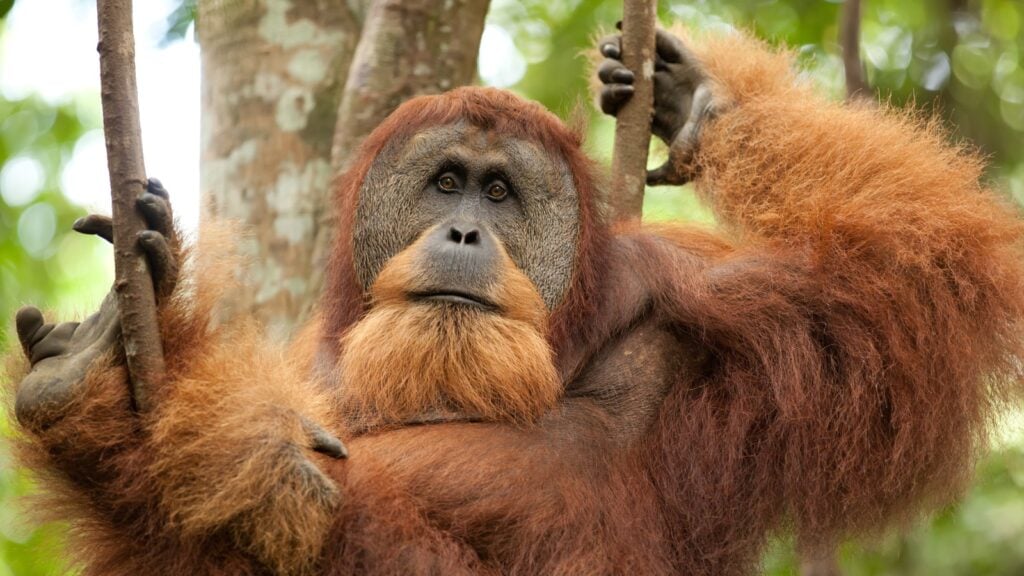The Guardian reports that researchers studying orangutan calls have found that they regularly come up with new versions varying in pitch and duration.
Interestingly, whether the new versions catch on is influenced by the density of the local community.
Dr Adriano Lameira, author of the research from the department of psychology at the University of Warwick says:
“The way I see it is that low densities [of] orangutans have a slang repertoire that they constantly revisit and use. They are ‘conservative’, but once a new call variant is used, everyone hears it and the variant is quickly incorporated, enriching the slang,”
“In high density [communities of orangutans], communication is more like a cacophony. It seems ‘novelty’ is at a premium, much like in songbirds, and that individuals want to show off their coolness and how [much of a] rebel they are,” he said.
Origins of human language
Social influences have been found in songbirds and marmosets, but it had been unclear whether the same was true for non-human apes, until now.
Lameira added that there is growing evidence that great ape repertoires are composed of consonant- and vowel-like calls that can be controlled and combined to make syllable-like combinations, similar to human languages.
These sounds can even be used to communicate about past events.
“This new evidence cements a new view that great apes are highly desirable and unique model species to improve our [understanding] of language origin and language,” said Lameria.
The new findings support the theory that human language evolved gradually, with communication among our ape-like ancestors also heavily influenced by social factors.
Palm oil
Lameira added the new study also highlighted the importance of conservation.
“Great apes and their habitat must be preserved if we are to hold any chances of unveiling further pieces of the puzzle of language evolution,” he said.
Palm oil is the leading cause of extinction for the critically endangered species. More than 6,000 of the great apes die each year.
According to The Orangutan Project, nearly 80 percent of orangutan habitat has disappeared in the last two decades.
And now, more than 50 percent of orangutans live in unprotected forests that are managed by palm oil, timber, and mining companies.






